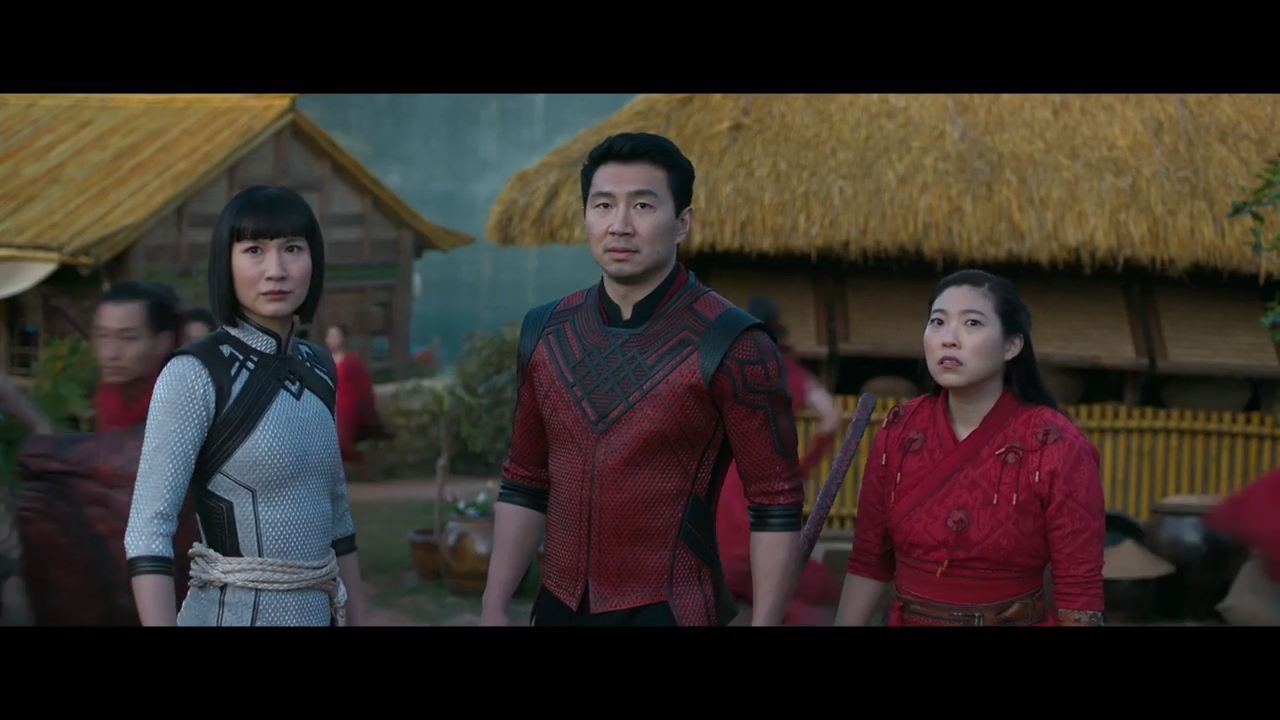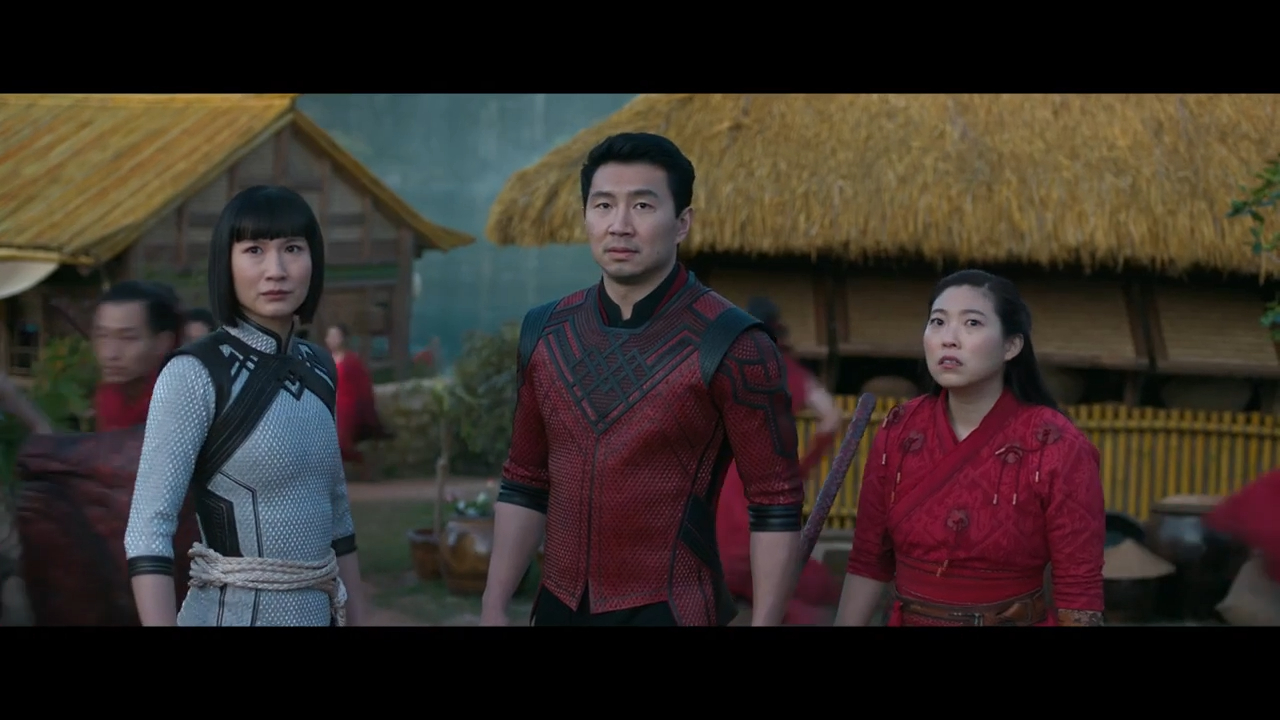**Shang-Chi and the Legend of the Ten Rings: A New Chapter in Marvel’s Universe**
_Shang-Chi and the Legend of the Ten Rings_ is a landmark film in the Marvel Cinematic Universe (MCU) that introduces a new hero, rich with martial arts mastery, mysticism, and a compelling personal story. Directed by Destin Daniel Cretton, the movie was released in 2021 and brought fresh representation and energy to Marvel’s superhero lineup.

The film centers around Shang-Chi, a character from the comics, and his journey from a life of hiding to accepting his heritage and unlocking his potential. Combining elements of traditional Chinese culture with superhero action, _Shang-Chi and the Legend of the Ten Rings_ showcases a blend of exhilarating combat scenes, mythological elements, and emotional depth.
The story begins with Shaun (played by Simu Liu), who has left his past behind and lives a seemingly ordinary life in San Francisco. However, Shaun is not who he appears to be—he is Shang-Chi, the son of Xu Wenwu (Tony Leung), the leader of the deadly organization known as the Ten Rings. Wenwu is an ancient warlord empowered by the titular Ten Rings, mystical artifacts that grant him immense power and longevity.
Shang-Chi and his best friend Katy (Awkwafina) are thrust into action when assassins from the Ten Rings organization track him down. This sets Shang-Chi on a path to confront his father, Wenwu, who is seeking the fabled city of Ta Lo, believing his deceased wife is imprisoned there.
The film explores Shang-Chi’s internal conflict, as he must reckon with his father’s legacy, the allure of power, and his sense of duty. Ultimately, he has to embrace his true identity and unlock the full potential of the Ten Rings to stop Wenwu and prevent catastrophe.
The Ten Rings, as depicted in the film, are powerful mystical objects that Wenwu uses to conquer and rule over centuries. In the comics, they are individual rings worn on each finger, each with a unique power. However, the film reimagines them as bracelet-like objects, worn five on each arm, enhancing the user’s physical abilities and granting them near-immortality.
These rings serve as a symbol of Wenwu’s power and influence, both in terms of the destruction they enable and the control he exerts over his empire. For Shang-Chi, the Ten Rings also represent a burden—his inheritance that connects him to his father’s dark past, yet ultimately, his tool for redemption.
The mystery of the Ten Rings extends beyond just their power. At the end of the film, their origins and true nature remain unclear, hinting at deeper connections to the cosmic side of the MCU, setting up future storylines.
**Shang-Chi (Shaun)**: Portrayed by Simu Liu, Shang-Chi is a conflicted hero. He has spent years running from his father’s empire and the trauma of his childhood, but when the past catches up to him, he must face it head-on. The film deftly balances his struggle with his identity and his role as a superhero. Unlike many MCU heroes, Shang-Chi does not rely on high-tech gadgets or mutations; his strength lies in his martial arts skills, shaped by both his father’s training and his mother’s teachings.
**Xu Wenwu (The Mandarin)**: Played by Tony Leung, Wenwu is a complex antagonist. While he is the leader of the Ten Rings and an ancient conqueror, his motivations are deeply personal. His love for his wife drives him to dangerous lengths, and while his methods are villainous, his pain is human. Wenwu is not just a typical power-hungry villain; he is a man blinded by grief. Tony Leung’s nuanced performance adds layers to Wenwu, making him one of the more sympathetic villains in the MCU.
**Katy**: Awkwafina’s Katy serves as Shang-Chi’s best friend and comic relief. Although she starts the film with no combat abilities or knowledge of Shang-Chi’s past, she grows into a crucial part of the team. Katy’s journey from an outsider to a hero in her own right mirrors Shang-Chi’s acceptance of his own destiny.
**Xialing**: Meng’er Zhang portrays Shang-Chi’s sister, Xialing, who also ran away from her father’s empire. However, unlike her brother, she was denied the same training and opportunities, leading her to build her strength in secret. Xialing’s character arc is about asserting herself, reclaiming her place in the family, and ultimately stepping out of her brother’s shadow.
At its core, _Shang-Chi and the Legend of the Ten Rings_ is about identity and reconciling with one’s past. Shang-Chi struggles with the dual legacies of his parents. His father represents power, violence, and control, while his mother represents peace, harmony, and wisdom. Throughout the film, Shang-Chi must find balance between these two legacies to forge his own path.
The theme of forgiveness also plays a central role. Shang-Chi has to forgive his father for the pain caused by his mother’s death, but more importantly, he has to forgive himself for his perceived failures and choices. In the climactic battle, the emotional weight of these themes is heightened as Shang-Chi confronts not just his father but also the parts of himself he has been running from.
One of the most exciting aspects of _Shang-Chi and the Legend of the Ten Rings_ is its action sequences. The film draws heavily from traditional martial arts cinema, with intricate choreography that sets it apart from the typical brawls seen in many superhero films. From a thrilling bus fight in San Francisco to a graceful, wuxia-inspired battle in Ta Lo, the film uses martial arts not just as a means of combat but as a way to convey character emotion and development.
The fight scenes are a blend of realism and fantasy, rooted in martial arts techniques like Wing Chun, tai chi, and kung fu, while also incorporating the mystical elements of the Ten Rings. The result is a visual spectacle that honors the genre while giving it a modern, superheroic twist.
_Shang-Chi and the Legend of the Ten Rings_ represents a significant moment for Asian representation in Hollywood. As the first Asian-led superhero film in the MCU, it offers audiences a diverse cultural perspective that has been underrepresented in mainstream media. The film doesn’t shy away from its cultural roots, weaving Chinese mythology, family dynamics, and the immigrant experience into its narrative.
Simu Liu’s casting as the first Asian lead in the MCU was a breakthrough moment, and the film’s success at the box office demonstrated the demand for diverse stories. The film’s cultural significance extends beyond just representation; it also challenges the negative stereotypes that have plagued Asian characters in Western cinema, offering a more nuanced and authentic portrayal of Asian culture.
The film’s post-credit scenes hint at a larger role for Shang-Chi in the future of the MCU. His connection to the Ten Rings and their mysterious origin suggests that Shang-Chi will play a significant part in the cosmic or mystical realms of the MCU, potentially alongside characters like Doctor Strange or even the Guardians of the Galaxy.
Moreover, the reformation of the Ten Rings organization under Xialing’s leadership at the end of the film opens up new possibilities for future storylines. Will the Ten Rings continue as a force for good or evil? How will Shang-Chi’s relationship with his sister evolve? These questions set up intriguing possibilities for sequels and crossovers within the broader MCU.
_Shang-Chi and the Legend of the Ten Rings_ is a groundbreaking film that combines thrilling martial arts action with heartfelt storytelling. It introduces a new hero to the MCU, one whose story is deeply rooted in family, legacy, and self-discovery. The film’s representation of Asian culture, along with its fresh take on the superhero genre, makes it a standout entry in the MCU.

